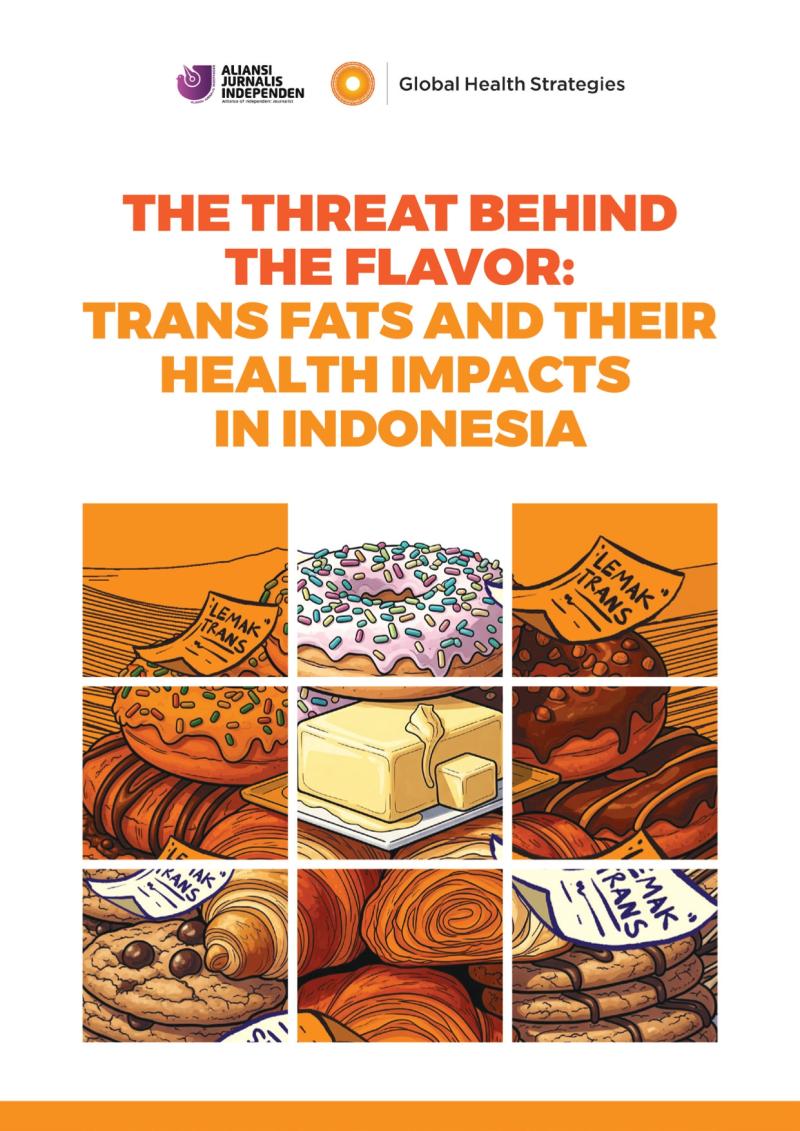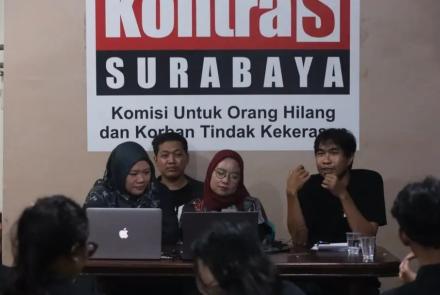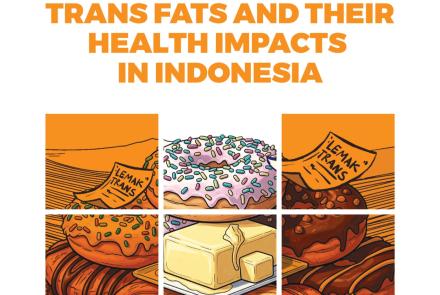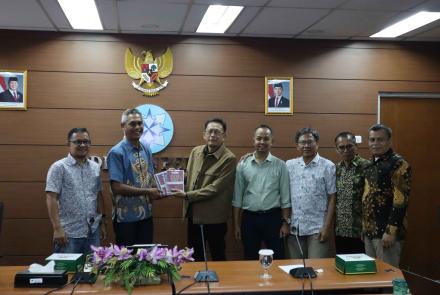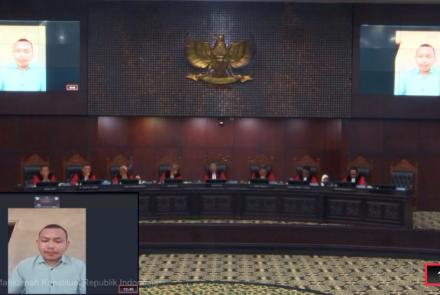The Threat Behind the Flavor: Trans Fats and Their Health Impacts in Indonesia
Excessive consumption of trans fatty acids (TFAs) is closely linked to an increased risk of heart attack and death from coronary heart disease. The WHO recommends that adults limit their consumption of trans fat to less than 1% of their total energy intake, or less than 2.2 g per day for a 2,000-calorie diet. The WHO calls for the elimination of industrial TFAs and has published the REPLACE framework for action to support countries in eliminating TFAs from their food supply.
In 2023, WHO Indonesia supported a study on sources of trans fatty acids in food, which measured the trans fat content in foods (fat/oil-based) widely consumed in Indonesia. This study supports the Indonesian government’s efforts to eliminate industrial trans fat. A total of 130 food products from four categories were tested: foods containing fat and oils, margarine and spreads, packaged foods, and ready-to-eat foods.
The WHO study found: (1) 8.46% samples had high trans fat content (above the WHO recommended threshold of 2 g/100 g total fat). (2) High trans fat content is found in widely consumed products such as biscuits, wafers, cakes, pastries, and street snacks like martabak and roti maryam. (3) High trans fat content is also found in ingredients widely used to make cakes and bread, such as shortening and margarine and butter mixtures (both imported and domestic products). (4) 25% baked goods samples had high trans fat content. (5) The highest trans fat content was found in margarine and butter mixtures (imported products), namely 22.68 g ALT, or 10 times higher than the WHO threshold recommendation.
Based on this description, the follow-up that must be taken by Indonesia is to establish regulations to eliminate industrial trans fat by limiting trans fat content to 2% of the total fat content in all food products or prohibiting the production, use, sale, and import of partially hydrogenated oils (PHO). Without regulations to eliminate trans fat, Indonesia faces the risk of the influx of products high in trans fat, as manufacturers target markets where these products are still permitted.
In this context, journalists play a key role. They are not simply news providers, but public opinion shapers capable of influencing public attitudes and behavior. Journalists have been equipped with accurate data, strong narratives, and a deep understanding of the trans fatty acid issue to prepare them for field reporting.
The Alliance of Independent Journalists (AJI) Indonesia, along with Global Health Strategies, sees a strategic opportunity in building public opinion. Journalists participate in a series of training and mentoring sessions by experts such as WHO, the Ministry of Health, and academics to produce high-quality, in-depth coverage. Through training and scholarships, this initiative targets capacity building for journalists in Greater Jakarta (Jakarta, Bogor, Depok, Tangerang, and Bekasi). Furthermore, this reporting is expected to serve as recommendations for the government in formulating public policy.
This compilation of reporting provides extensive data and facts about lifestyles dependent on convenient and affordable foods. Stories of fried food vendors claiming to use bulk margarine because it’s much cheaper, and grocery stores and roadside stalls selling products without nutritional labels, are widespread, due to a lack of exposure to the importance of food products with nutritional labels. This lack of information makes it difficult for consumers to make healthy decisions, and the impact is felt most acutely by lower-middle-class children who rely on cheap, high-fat snacks for their daily diet.
Other coverage highlights the dangers of excessive consumption of unhealthy fats, which not only cause heart disease but also have economic impacts, undermining the household finances of patients at both the microeconomic and macroeconomic levels. Another coverage highlights the high incidence of diabetes in children. This article examines healthy canteens as an effort to reduce the rate of diabetes in children. It also examines how implementing healthy canteens in schools can educate children about healthy lifestyles. All of this coverage is based on scientific research and interviews with several experts and stakeholders involved in the issue of trans fatty acids.
The issue of trans fatty acid consumption is often discussed from a medical or lifestyle perspective, but is still rarely addressed from a macroeconomic and fiscal policy perspective. With this approach, it is hoped that this book will provide a new perspective and contribute to increased public awareness and national food policy reform.
Writers: Afrin Dwimeyriana, Ahmad Thovan Sugandi, Anggita Raissa Amini, Anza Suseno, Benediktus Krisna Yogatama, Deonisia Arlinta, Emanuel Berkah Caesario, Hoirunnisa, Resty Magdalena Tuter, Yulia Adiningsih
Mentor: Bayu Wardana, Dian Yuliastuti, Uyung Pramudiarja
Reviewers (Global Health Strategies): Ganendra Awang Kristandya, Siva Anggita Maharani, Benny Wijaya Sunggono
Book Editor: Lusia Febriana Arumingtyas
Script Writer: Efrial Ruliandi Silalahi, Arie Budi Kusuma Ningrum
Cover and Layout Design: Krisna Sahwono
First Edition: September 2025
Book Size: 14,8 x 21 cm (A5 size)
- 55 kali dilihat

